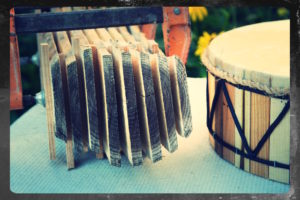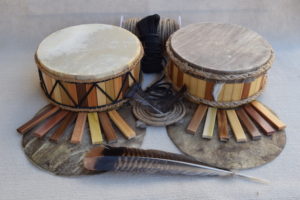
Rituals are intended to open us up to unfamiliar places in our inner world that gives meaning to our conscious/outer world. They can give order, like a morning routine or be disruptive in a helpful, healthy way, like the Rites of Passage for Men that some of us may have attended.
Rites of passage try to create a safe container in which to experience perhaps a call to a new level of maturity or greater interior integration. The container allows us to confront and be confronted by obstacles to growth and to transform us into a new way of seeing and being. It is our hope that this rite of passage for young teen males will be such an experience – both for the boys and their dads or mentor.
In this safe container, it is our hope that the narrow male stereotypes that young teens are bombarded with through most of the media they are exposed to and even perhaps by men whom they admire, will be challenged. In that challenge, we hope that those who participate will gain a wider view of what being a man means – or at least the beginning of such an opportunity. It is our hope that this will be especially true for the dads or mentors, so that they can continue the journey with these youth with greater intentionality.
This rite of passage focuses on young males who are at the beginning of their pubescent experience. Their bodies are alerting them to the approach of something new and different about themselves. Their idealism and energy open them to challenges that they may sense are important and meaningful; even if they do not yet have enough life experience to reap the challenges fullest meaning for themselves. This is where the dads’ or mentor’s presence at the rites and in the boy’s future is important for him to perhaps have a greater understanding of what his journey to manhood means. It is our hope that this rite of passage will be one of those safe containers where a youth can approach a passage way to liminal space where he can sense a healthy vision of his maleness and future manhood. And invite him and his dad or mentor to continue the journey together and individually.
Fathers are the first and primary mentor of their sons. But he cannot be all things for his son. It takes a community of men to fill in the gaps he is unable to fill. When the dad is not in the picture for whatever reason, grandfathers, uncles or other interested men need to step up and help a boy find his way.
There is an African proverb that says, “If the youth are not initiated, they will burn down the village.” Witnessing the dysfunction in society, especially in our politics, maybe it is time to once again return to this wisdom practice for the benefit of our young men, as well as for the benefit of society and the world.
Something is seriously broken in our culture. Most of our youth today, especially males, are addicted to screens and increasingly avoid person-to-person/face-to-face contact preferring instead to communicate via texting or on social media where everything is very controlled and orchestrated with one’s image in mind. We surely need new ideas to help our youth grow into healthy adults. We think this Youth Rites of Passage is just such an approach- a modern version of one that has been used to initiate youth from the beginning of humankind.




 Gift him with this drum-build experience. Leaders of this Youth Rites of Passage are committed to passing on this ancient wisdom practice. They will teach you individual components of the drum can be intentional metaphors that represent our life experiences. The wood strips and goat skin are powerful signposts for our psyches to help us realize that discomfort and suffering often accompany new growth and allow for healthy transition in life.
Gift him with this drum-build experience. Leaders of this Youth Rites of Passage are committed to passing on this ancient wisdom practice. They will teach you individual components of the drum can be intentional metaphors that represent our life experiences. The wood strips and goat skin are powerful signposts for our psyches to help us realize that discomfort and suffering often accompany new growth and allow for healthy transition in life.
 Rituals are intended to open us up to unfamiliar places in our inner world that gives meaning to our conscious/outer world. They can give order, like a morning routine or be disruptive in a helpful, healthy way, like the Rites of Passage for Men that some of us may have attended.
Rituals are intended to open us up to unfamiliar places in our inner world that gives meaning to our conscious/outer world. They can give order, like a morning routine or be disruptive in a helpful, healthy way, like the Rites of Passage for Men that some of us may have attended.
 No prior experience in woodworking is needed to participate. The drum is easily assembled in just over two hours and playable before leaving.
No prior experience in woodworking is needed to participate. The drum is easily assembled in just over two hours and playable before leaving.